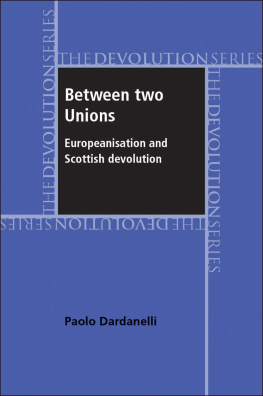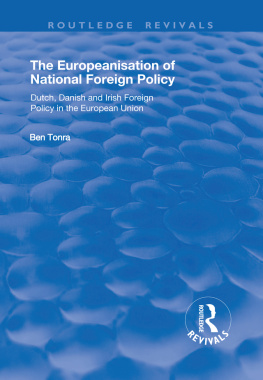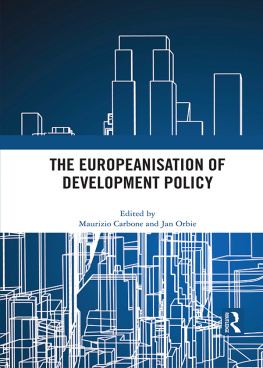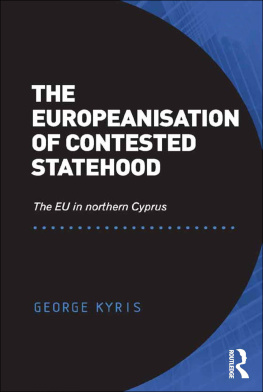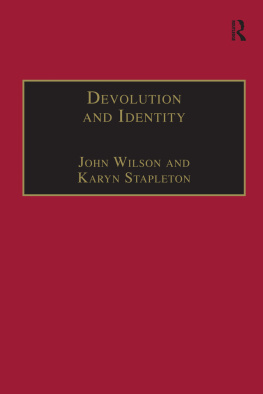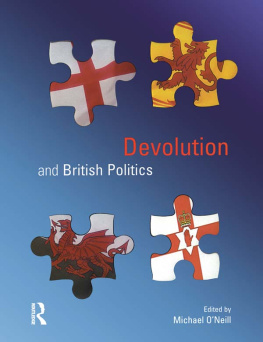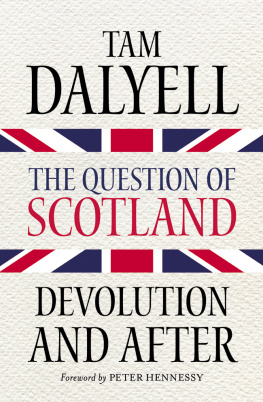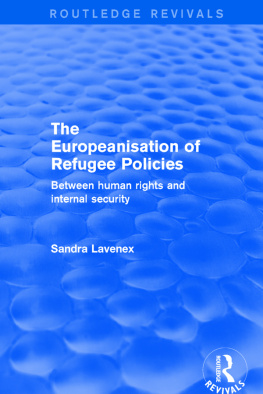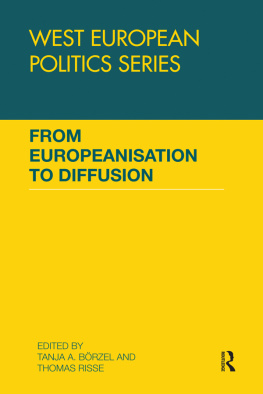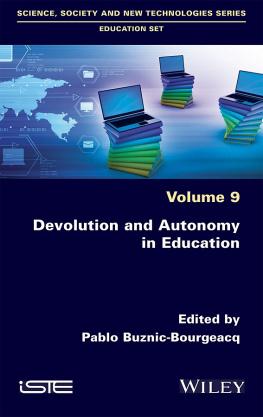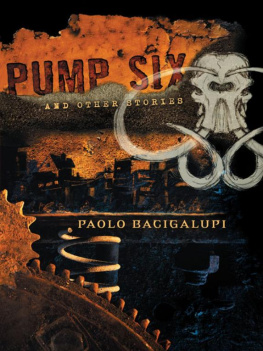Paolo Dardanelli - Between Two Unions: Europeanisation and Scottish Devolution
Here you can read online Paolo Dardanelli - Between Two Unions: Europeanisation and Scottish Devolution full text of the book (entire story) in english for free. Download pdf and epub, get meaning, cover and reviews about this ebook. year: 2006, publisher: Manchester University Press, genre: Politics. Description of the work, (preface) as well as reviews are available. Best literature library LitArk.com created for fans of good reading and offers a wide selection of genres:
Romance novel
Science fiction
Adventure
Detective
Science
History
Home and family
Prose
Art
Politics
Computer
Non-fiction
Religion
Business
Children
Humor
Choose a favorite category and find really read worthwhile books. Enjoy immersion in the world of imagination, feel the emotions of the characters or learn something new for yourself, make an fascinating discovery.
- Book:Between Two Unions: Europeanisation and Scottish Devolution
- Author:
- Publisher:Manchester University Press
- Genre:
- Year:2006
- Rating:3 / 5
- Favourites:Add to favourites
- Your mark:
- 60
- 1
- 2
- 3
- 4
- 5
Between Two Unions: Europeanisation and Scottish Devolution: summary, description and annotation
We offer to read an annotation, description, summary or preface (depends on what the author of the book "Between Two Unions: Europeanisation and Scottish Devolution" wrote himself). If you haven't found the necessary information about the book — write in the comments, we will try to find it.
Between Two Unions: Europeanisation and Scottish Devolution — read online for free the complete book (whole text) full work
Below is the text of the book, divided by pages. System saving the place of the last page read, allows you to conveniently read the book "Between Two Unions: Europeanisation and Scottish Devolution" online for free, without having to search again every time where you left off. Put a bookmark, and you can go to the page where you finished reading at any time.
Font size:
Interval:
Bookmark:

 DEVOLUTION series
DEVOLUTION seriesUK health policy in comparative perspective Scott L. Greer

asserted by him in accordance with the Copyright, Designs and Patents Act 1988.
Oxford Road, Manchester M13 9NR, UK
and Room 400, 175 Fifth Avenue, New York, NY 10010, USA
www.manchesteruniversitypress.co.uk
Palgrave, 175 Fifth Avenue, New York,
NY 10010, USA
UBC Press, University of British Columbia, 2029 West Mall,
Vancouver, BC, Canada V6T 1Z2
A catalogue record for this book is available from the British Library
Printed in Great Britain
by CPI, Bath
A three-level Europeanisation model |
The systemic shift, 197997 |
Importance of self-government by party identification, 1979 |
Support for self-government by party identification, 1979 |
Referendum vote by party identification, 1979 |
Interpretation of the referendum result by party identification, 1979 |
Referendum vote of supporters of self-government, 1979 |
Most important disadvantage of devolution by constitutional preference, 1979 |
Attitudes to independence by party identification, 1979 |
Attitudes to the status quo and to independence among supporters of devolution, 1979 |
Perceived effect of SNP on devolution by party identification, 1979 |
Attitudes to the UK by party identification, 1979 |
Attitudes to the EU by party identification, 1979 |
Logistic regression models of No voting in the 1979 referendum |
Importance of self-government by party identification, 1997 |
Support for self-government by party identification, 1997 |
Referendum vote by party identification, 1997 |
Referendum vote of supporters of self-government, 1997 |
Parliaments most important thing not to do by vote in the referendum, 1997 |
Second preference of supporters of devolution by party identification, 1997 |
Attitudes to the UK by party identification, 1997 |
Attitudes to the EU by party identification, 1997 |
Logistic regression models of Yes voting in the 1997 referendum |
Font size:
Interval:
Bookmark:
Similar books «Between Two Unions: Europeanisation and Scottish Devolution»
Look at similar books to Between Two Unions: Europeanisation and Scottish Devolution. We have selected literature similar in name and meaning in the hope of providing readers with more options to find new, interesting, not yet read works.
Discussion, reviews of the book Between Two Unions: Europeanisation and Scottish Devolution and just readers' own opinions. Leave your comments, write what you think about the work, its meaning or the main characters. Specify what exactly you liked and what you didn't like, and why you think so.

